
Here's some of what is coming soon to NeurologyLive® this week.

AMT-130, uniQure’s investigational gene therapy, is the first therapeutic candidate to receive regenerative medicine advanced therapy designation for Huntington disease.

The assistant professor of neurology at UCSF Weill Institute for Neurosciences talked about a study that explored the use of commercial wearable devices to monitor and manage bladder dysfunction in multiple sclerosis. [WATCH TIME: 6 minutes]
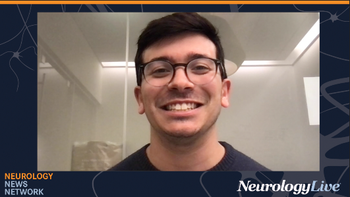
Neurology News Network. for the week ending June 15, 2024. [WATCH TIME: 4 minutes]

Test your neurology knowledge with NeurologyLive®'s weekly quiz series, featuring questions on a variety of clinical and historical neurology topics. This week's topic is on narcolepsy.

Ron Grunstein, MD, PhD, head of Sleep and Circadian Research at the Woolcock Institute of Medical Research, provided commentary on early, promising data regarding investigational agent ALKS 2680 in patients with narcolepsy type 1.

Rakesh Jain, PhD, MS, clinical professor of psychiatry at the Texas Tech University School of Medicine, provided insight on a recently approved tablet dosage for deutetrabenazine, an FDA-approved therapy for chorea and tardive dyskinesia associated with Huntington disease.

Take 5 minutes to catch up on NeurologyLive®'s highlights from the week ending June 14, 2024.

AOC 1020 (del-brax) from Avidity Biosciences shows over 50% reduction in DUX4 regulated genes, trends of functional improvement, and favorable safety in FSHD patients.

John Dunlop, PhD, the chief scientific officer at Aliada Therapeutics, discussed the MODEL platform and its potential impact on therapeutic delivery for neurological conditions.

Mind Moments®, a podcast from NeurologyLive®, brings you exclusive interviews with Anthony Feinstein, PhD, FRCPC, MBBCh; Brian G. Weinshenker, MD; Douglas A. Wajda, PhD; Le Hua, MD; and Eoin P. Flanagan, MB, BCh. [LISTEN TIME: 22 minutes]

Experts have published new guidelines to standardize the definition and treatment of seizures, emphasizing early intervention to prevent severe seizure emergencies.

Satellos Bioscience has established a clinical advisory board to aid in developing their lead drug candidate SAT-3247, an oral small molecule therapy for Duchenne muscular dystrophy.
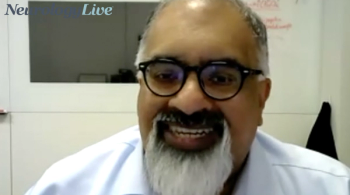
The director of the Center for Sleep and Cardiovascular Outcomes Research at University of Pittsburgh talked about a novel pharmacologic treatment that shows potential as an alternative to continuous positive airway pressure for sleep apnea. [WATCH TIME: 5 minutes]

Fordadistrogene movaparvovec is a recombinant AAV9 agent carrying a shortened version of the dystrophin gene, being assessed in the phase 3 CIFFREO study.
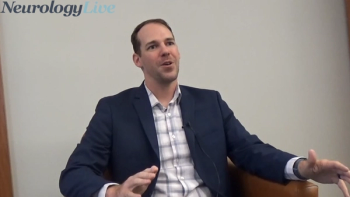
The assistant professor of neurology at Cleveland State University provided perspective on an early-stage study assessing the impacts of a functional electrical stimulation approach to treat gait problems in multiple sclerosis. [WATCH TIME: 4 minutes]

For up to 24 months, patients on mirdametinib demonstrated significant improvements in pain severity, pain interference, and health-related quality of life, in addition to deep and durable plexiform neurofibroma volume reductions.

Although a small sample of 5 patients with DMD, results showed significant expression of microdystrophin and reductions in creatine kinase, a biomarker of muscular distress, in GTN0004-treated patients.

Deflazacort, a corticosteroid approved for children with Duchenne muscular dystrophy, has been on the market since 2017 under the name Emflaza.

The director of Mission Delivery and Program Development for the Multiple Sclerosis Association of America provided perspective on a study presented at CMSC 2024 highlighting factors that play a role in access to resources and healthcare for patients with MS. [WATCH TIME: 3 minutes]

John Novak, MD, MS, director of the OhioHealth ALS Clinic and vice chair of the ALS Association Care Services Committee, provided insight on the upcoming ALS Nexus Conference, the first ever educational event from the organization, spanning multiple days in July.

The pediatric neurologist and sleep medicine specialist at Geisinger Medical Center discussed a presentation from SLEEP 2024 highlighting the impacts of narcolepsy and how patients try to mitigate their symptoms. [WATCH TIME: 5 minutes]

The head of the MS Center at Methodist Hospitals discussed the need for inclusive and affirming healthcare practices for patients with multiple sclerosis who identify as LGBTQ+.
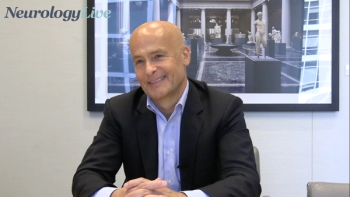
The president and CEO at Alzheon talked about the recent discoveries made in understanding the pathology of Alzheimer disease and the development of innovative therapies to potentially set the stage for more effective care. [WATCH TIME: 12 minutes]

The FIREFISH study showed that most children maintained or improved motor functions and feeding abilities over five years.

The clinical research director of the UCSF Multiple Sclerosis Center provided an overview of the phase 2/3 N-Momentum study assessing the efficacy of inebilizumab in patients with neuromyelitis optica spectrum disorder. [WATCH TIME: 5 minutes]

Steven Shapiro, MD, medical director for Stroke Services at RWJBarnabas Health’s Cooperman Barnabas Medical Center, highlighted some of the reasons why stroke occurs in younger adults under the age of 45 and the risk factors as well as preventative measures this population should be aware of.
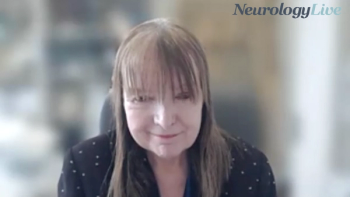
The professor of neurology at Stony Brook Medicine talked about the diagnosis of primary progressive multiple sclerosis, a unique MS phenotype characterized by a gradual deterioration without initial attack. [WATCH TIME: 5 minutes]

In a pivotal, large-scale, phase 3 trial, donanemab met its primary end point, demonstrating more pronounced effects in patients with early-stage Alzheimer disease who had low/medium tau status.
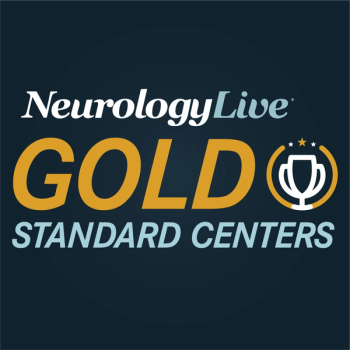
The Minority Stroke Program, open since 2019, encompasses a group of highly trained stroke experts who provide high quality care and education for minority ethnic patients presenting with stroke.